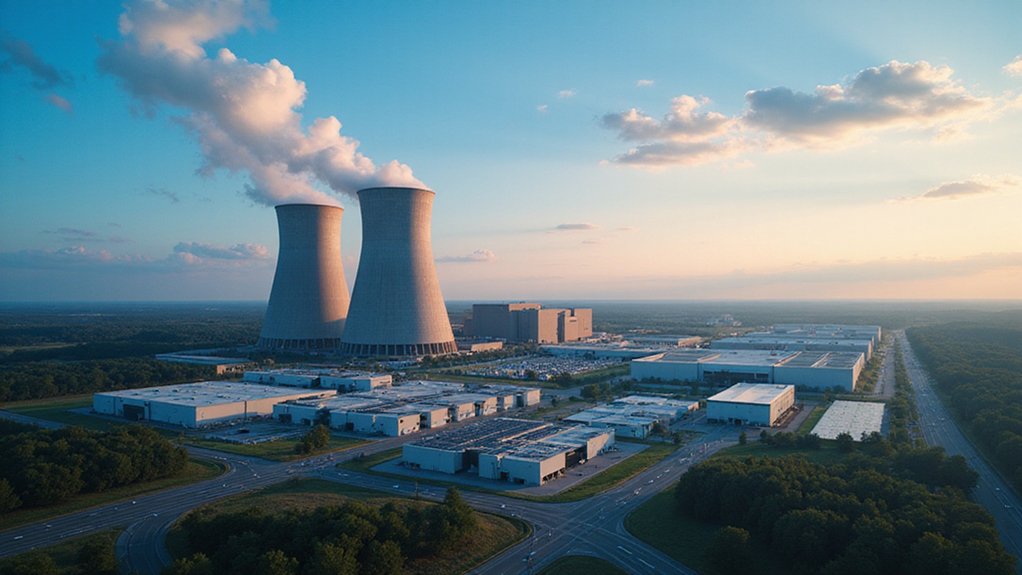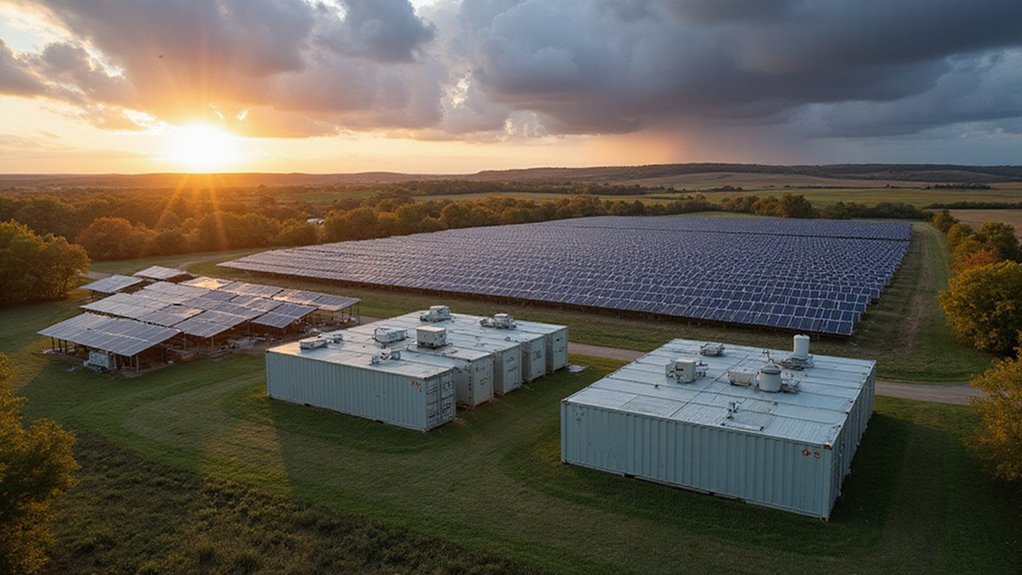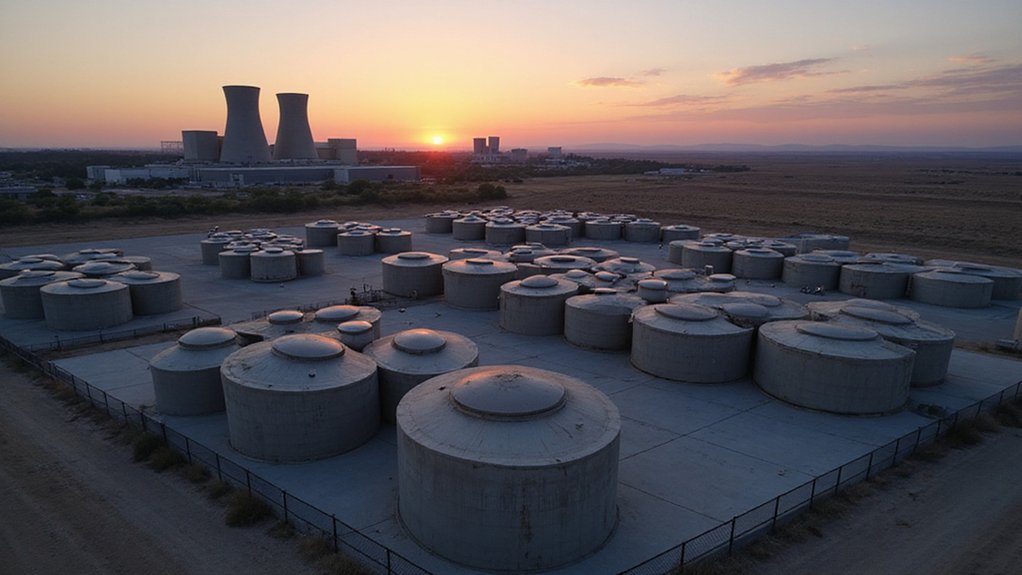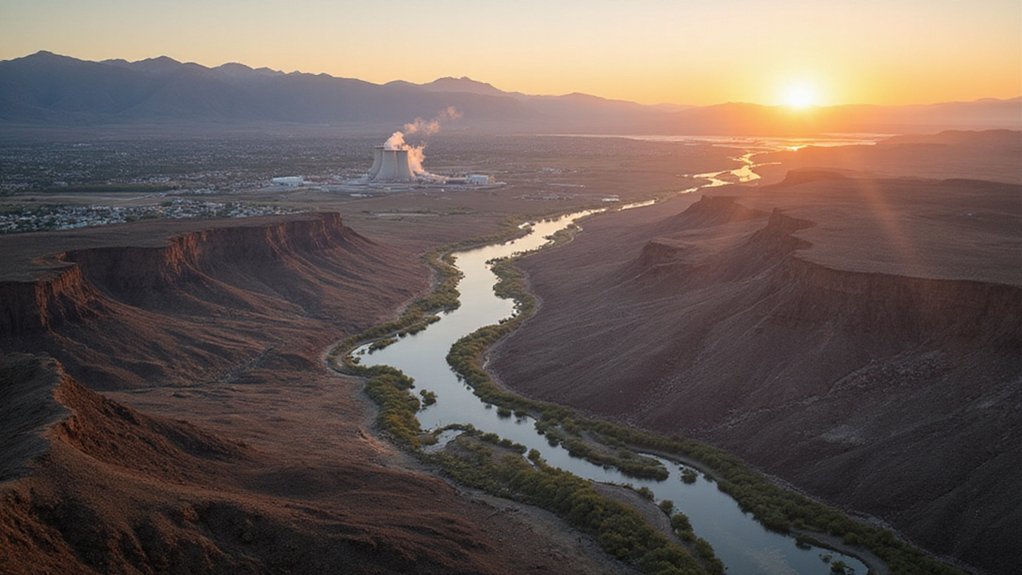Meta just signed a massive nuclear power deal, and it’s not playing around. The social media giant locked down 1,121 megawatts of nuclear juice from Illinois’s Clinton Clean Energy Center for the next 20 years. That’s enough to power roughly a million homes, except Meta‘s using it all for AI and data centers.
Meta locked down 1,121 megawatts of nuclear juice for AI and data centers—enough to power a million homes.
The timing isn’t accidental. Illinois’s zero emission credit program dies in 2027, and without this deal, Clinton might’ve gone dark. Instead, Meta’s cash keeps 1,100 workers employed and pumps $13.5 million annually into local taxes. Constellation Energy, which runs the plant, is even throwing in a million bucks for local nonprofits over five years. Nice gesture, considering they just scored a two-decade payday. Constellation also plans to boost Clinton’s output by 30 megawatts through plant upgrades.
Nuclear makes sense for Meta’s AI ambitions. Wind and solar are cute, but they don’t work when the sun’s down or the air’s still. While renewable energy costs have fallen dramatically, with cost reductions of 55% for wind and 76% for solar in South Africa, AI servers need constant power, 24/7, no excuses. Meta’s already blown billions on 86 wind and solar projects across 24 states, totaling 9,800 megawatts. Now they’re hedging their bets with atomic energy.
The company isn’t stopping there. Meta’s shopping for another 1 to 4 gigawatts of nuclear capacity. That’s potentially quadruple this Clinton deal. They’re joining Google, Microsoft, and Amazon in the nuclear club, all desperate to feed their growing AI appetites without frying the planet. Major financial players like Bank of America and Goldman Sachs are backing the nuclear renaissance, pledging to help triple global nuclear capacity by 2050.
Public opinion’s shifting too. Nuclear support hit 61% in recent polls, probably because people finally realized coal plants kill more folks annually than Chernobyl ever did. The feds want to quadruple U.S. nuclear capacity by 2050, and tech companies are leading the charge.
Small modular reactors are the next big thing, apparently. Easier to build, harder to melt down. Meta’s eyeing those too.
This Clinton deal might look risky now. Twenty years is forever in tech time. But if AI keeps exploding and climate regulations tighten, Meta could look like geniuses. Or they’ll be stuck paying for expensive nuclear power while everyone else runs on fusion or hamster wheels. Time will tell.
References
- https://insideclimatenews.org/news/03062025/meta-constellation-nuclear-power-deal/
- https://www.world-nuclear-news.org/articles/meta-constellation-sign-20-year-clean-power-deal
- https://www.constellationenergy.com/newsroom/2025/constellation-meta-sign-20-year-deal-for-clean-reliable-nuclear-energy-in-illinois.html
- https://sustainability.atmeta.com/energy/
- https://www.ainvest.com/news/nuclear-power-unseen-pillar-fueling-meta-ai-ambitions-era-clean-energy-2506/








